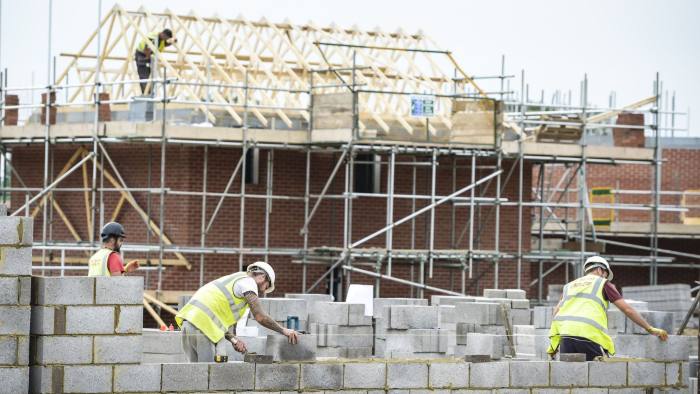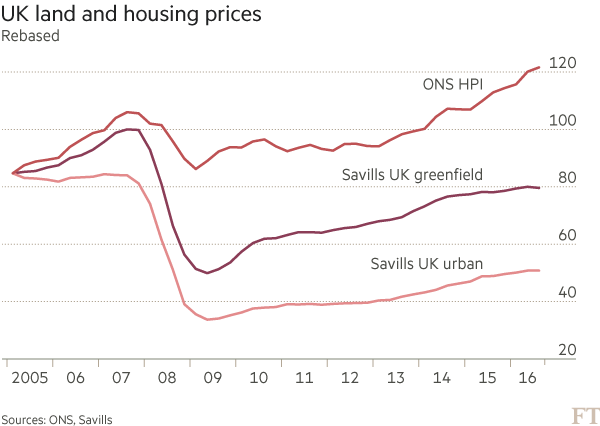Next year could be the first since 2012 in which UK consumer prices grow faster than house prices. A recent survey of property market analysts by Reuters put the average estimate for UK-wide house price inflation at 2 per cent. Some are expecting a small decline. The Bank of England is forecasting CPI of 2.7 per cent in 2017
That poses some interesting questions for investors in UK housebuilders’ shares. They sold off sharply after the EU referendum in June, and are still down by between 20 and 30 per cent year-to-date. Despite this correction, relative to book value (basically the value of land and homes under construction) they are at about the same level they were before the financial crisis.
The house price euphoria of that era has been replaced by unease over household indebtedness and rising housing inequality. But even so, bulls can with justification point to any number of reasons why “this time is different”. Mortgage rates are very low and a government ideologically obsessed with owner occupation has been throwing subsidies at builders and buyers.
Housebuilders themselves are in far better condition. Take Barratt: in 2007 it was carrying £1.3bn of debt and had negative free cash flow. Now it has almost £600m in net cash and more is piling up. Volume is less of a priority than returns on capital. Shareholders are being showered with dividends.
Furthermore, building homes is a margin business and one part of that margin has remained favourable. Land costs normally rise as house prices do. Buying too much land in a rising market during the noughties was a significant reason several builders had near-death experiences in 2008/9.
But land prices fell by more than house prices during the crash and have remained subdued ever since. In the year to September, urban land values rose 4 per cent, according to Savills. House prices nationally rose by almost twice that amount. Many of the smaller companies that competed for development land no longer exist.
Lower house price inflation, lower transaction volumes and slower economic growth are not good for housebuilders. But the benign conditions in the land market suggest that anyone expecting big declines in profitability in the sector next year is likely to be disappointed.



